Thought-provoked by ‘Oppenheimer’
By Victor Gilinsky | July 28, 2023
 J. Robert Oppenheimer (as portrayed by actor Cillian Murphy) inspects the "Gadget" ahead of the Trinity test in a scene from Christopher Nolan's film 'Oppenheimer'. (Image courtesy of Universal Pictures)
J. Robert Oppenheimer (as portrayed by actor Cillian Murphy) inspects the "Gadget" ahead of the Trinity test in a scene from Christopher Nolan's film 'Oppenheimer'. (Image courtesy of Universal Pictures)
Dramatizing the wartime story of the Los Alamos Laboratory is especially hard because J. Robert Oppenheimer and the other main characters have appeared in many documentaries. The photography in Christopher Nolan’s Oppenheimer is great and the settings are authentic. But for anyone who has watched those other documentaries—let alone met some of the main characters in person—the actors do not look, sound, or feel real. When I watched Nolan’s film last week, I never lost the feeling that these were just actors speaking their lines. What follows is not a movie review, but a comment on a few episodes from the film that deal with the making of the bomb and Oppenheimer’s role in it.
Nolan’s film didn’t make clear that, however important Los Alamos was in designing the first atomic bomb, the laboratory was actually a very small part of the Manhattan Project—most of which dealt with producing the nuclear explosives without which Los Alamos could do nothing. General Lesley R. Groves, a highly intelligent officer, ran it all. He had outstanding scientific advisors, but he himself had to make risky decisions on choosing contractors and building enormous facilities. Picking the people he needed to successfully direct the project was critical.
To me, the most remarkable moment of the Los Alamos story is when Groves selected Oppenheimer as scientific director of the bomb design project in late 1942. Everyone acknowledged Oppenheimer’s intellectual grasp of the scientific and technical issues, but no one thought he was qualified to manage a project of this scale. No one, except Groves. The general surely had something else in mind, too. A powerful figure like Ernest Lawrence, a Nobel Prize winner who exuded self-confidence, would have been more difficult to control. Groves shrewdly saw in Oppenheimer not only intellectual strength, but also a weakness toward accepting authority.
It turned out to be an inspired choice. Oppenheimer not only recruited a brilliant team of physicists, he also proved to be an exceptional manager with just the right intellectual and human touch for this extraordinary scientific enterprise. Hans Bethe, who was head of the theoretical division at Los Alamos and later won a Nobel Prize, said of Oppenheimer: “It was clear to all of us, whenever he spoke, that he knew everything that was important to know about the technical problems of the laboratory, and he somehow had it well organized in his head.” Even Edward Teller, who started his quest for thermonuclear bombs at Los Alamos, said of Oppenheimer that he “knew how to lead powerfully without seeming to do so.” And experimental physicist Luis Alvarez, then another future Nobel Prize winner, said: “Remembering the unworldly and long-haired prewar Robert, I was surprised to see the extent to which he had developed into an excellent laboratory director and a marvelous leader of men.”
At Los Alamos, Oppenheimer wasn’t himself the originator of scientific ideas, or one to work them out. But he was exceptionally skilled at absorbing these ideas and explaining them—sometimes better than their originators—and, when necessary, redirecting the laboratory effort to focus on them. He was very effective in creating a kind of scientific utopia. Many of the participants looked back on their Los Alamos experience as (Bethe again) “the great time of their lives.”
Los Alamos scientists and engineers cheered when the bomb worked. It was only natural to celebrate success after so many technical challenges. But, in retrospect, it is jarring that people who are upholders of human virtues can at the same time feel great joy and excitement about building a terrible weapon.
Dropping the atomic bomb on civilians was a different matter, though. Oppenheimer would have trouble coping with that decision, even though it was not his to make, for the rest of his life. Using his elegant style in speaking and writing, he tried to turn the Hiroshima and Nagasaki bombings into an argument to end war, any war. Oppenheimer always sounded profound, often he was profound. But sometimes profound became obscure, and even self-serving. In his November 1945 farewell talk to the Los Alamos Laboratory, he said: “But when you come right down to it the reason that we did the job is because it was an organic necessity. If you are a scientist, you cannot stop such a thing.”
After the war, Oppenheimer focused his effort and influence on promoting international control of “atomic energy.” He was the principal author of the Acheson-Lilienthal report that laid out a plan for an international authority to own and manage the dangerous aspects of the technology while leaving the “safe” aspects to national and commercial development. There were two problems. Oppenheimer’s proposed international scheme was hopelessly unrealistic, most obviously in dealing with Stalin’s Soviet Union. And the “safe” designation was based on the notion that “denatured” plutonium—with an admixture of higher isotopes—was not useful for weapons, which wasn’t true. Oppenheimer had to concede the last point when confronted by Alvarez, Bacher, Bethe, Seaborg, and others. The strangest part of this episode is that he must have known this when he proposed the plan.
During the Los Alamos years, people spoke of his warmth in discussion and the absence of the sharp tongue in argument that he used to exhibit before the war, sometimes to the point of cruelty. After the war it came back. Oppenheimer seemed to not understand that his elegant discourse didn’t work with all audiences. The film shows a 1949 congressional public hearing on exporting “isotopes” (a word few would have understood) at which Oppenheimer humiliated Lewis Strauss, then a commissioner of the Atomic Energy Commission. Strauss became an archenemy. After the hearing, Oppenheimer asked his lawyer, Joseph Volpe, “How did I do?” The answer—to which Oppenheimer should have paid more attention—was, “Too well, Robert, much too well.”
When it came to the 1954 security hearing, Oppenheimer didn’t understand what he was up against—forces that were bent on destroying him in whatever way they could. In lieu of defense, he relied too easily on his standing in the scientific community and was unprepared for battle. He chose, Lloyd Garrison, a very respectable and distinguished but mild-mannered counsel. Oppenheimer’s strength became his weakness in a contest for which his enemies had honed their weapons.
His lack of fight in the month-long hearing—in the film, his wife castigates him for it—may also have reflected his fear of revealing something he had still held back. Good friends, Albert Einstein among them, told him to let it go—he after all had requested the hearing. What did Oppenheimer need the Atomic Energy Commission’s security clearance for? He knew more than they did. His diplomat friend, George Kennan, who probably had a stronger sense of himself than Oppenheimer, suggested that he leave the country. But Oppenheimer couldn’t do it.
At the controversial 1954 hearing, many leading scientists testified in Oppenheimer’s favor. It fell on deaf ears. The film shows Isidor Isaac Rabi telling the board, “What do you need this hearing for? If you don’t want to listen to him, don’t call on him.” But it didn’t matter, they wanted to destroy him, and they did.
At the time I was an undergraduate student at Cornell, Bethe, then the University’s leading physics professor, circulated a letter supporting Oppenheimer addressed to the chairman and commissioners of the Atomic Energy Commission. I think everyone in the physics department signed it. When Bethe got a response, he posted it on the department bulletin board. It was breathtakingly callous. I don’t remember its exact words, but it started with something like: “Dear Prof. Bethe, Thank you for your interest in atomic energy…”
By all accounts, Oppenheimer was crushed after the ordeal of the hearing ended with the commission refusing him the Q clearance he would need to participate in government activities on nuclear weapons issues. In his subsequent private and public activities, he could still be his charming self. But Oppenheimer could also be mean, as I discovered in a small way in 1957. The illustrious scientist had been invited to spend a week on the Caltech campus in Pasadena, California, to meet with students. I was chairman of a student group that sponsored his talk. He agreed to take questions at the end but, to my horror, no one raised a hand, so I blurted out the first thing that came to mind, which was, “Professor Oppenheimer, what is the special responsibility that a scientist has to the public?” I had in mind the special knowledge that scientists had, but instead Oppenheimer seemed to take it as a criticism directed at him, to which he said: “That is a stupid question. A scientist has no more responsibility to the public than any other citizen does.” His response seemed inconsistent with his frequent message about the importance of the weapons physicists being absolutely honest and clear in speaking to the public and the government.
In 1958, I attended a Caltech physics colloquium at which Richard Feynman reported on Wolfgang Pauli’s presentation in New York of Heisenberg’s latest “theory of everything” (Weltformel). Pauli had invited a group of top American theoretical physicists. Feynman said he hadn’t understood the theory and told the audience the theory didn’t make sense. “No one understood it,” Feynman said, and then added with a grin, “except Oppenheimer.” The room burst into laughter. It wasn’t that they didn’t respect Oppenheimer. Feynman had elsewhere written, “he was a wonderful man.” But they didn’t hold him in high regard as a working physicist. The problem was he still pretended to be one. There was too much pretending.
Oppenheimer was an extraordinary man who did a great deal for American physics. And when his country needed him in war, he performed beyond all expectations. Despite his public service, in a fit of hysteria, the country stepped on him. The story has the makings of tragedy—not so much personal tragedy because it’s so hard to understand who Oppenheimer really was—but national tragedy when you consider where it led.
Oppenheimer’s vision for arms control is still upon us
‘Oppenheimer’ is terrific. But it’s just a movie
Thought-provoked by ‘Oppenheimer’
‘Oppenheimer’, the bomb, and arms control, then and now
‘Oppenheimer’ depicts a man becoming powerful—and irrelevant
Nuclear weapons since Oppenheimer: Who’s in control?
What ‘Oppenheimer’ can teach today’s scientists
Nolan’s ‘Oppenheimer’: an artistic visual tapestry of the bomb’s science and power intricacies
Widening the field of view on ‘Oppenheimer’
Together, we make the world safer.
The Bulletin elevates expert voices above the noise. But as an independent nonprofit organization, our operations depend on the support of readers like you. Help us continue to deliver quality journalism that holds leaders accountable. Your support of our work at any level is important. In return, we promise our coverage will be understandable, influential, vigilant, solution-oriented, and fair-minded. Together we can make a difference.
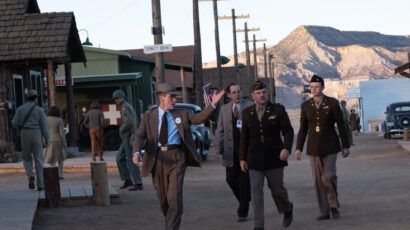

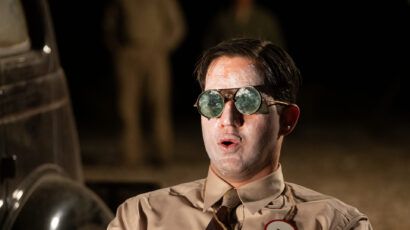
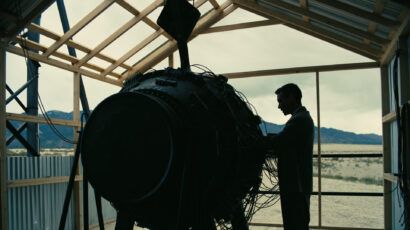
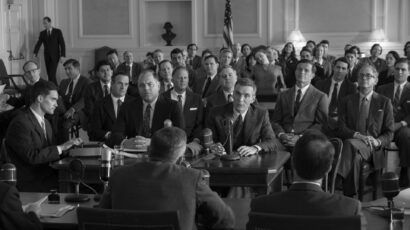
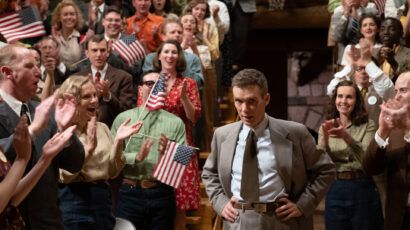
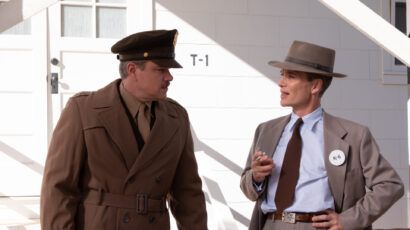

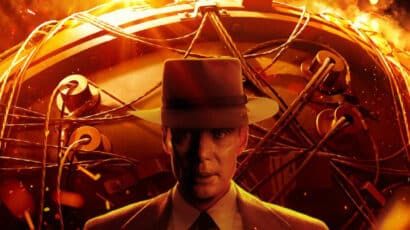
















Hi Victor! And thank you for your critique. When I met privately with Freeman Dyson in 2016 and 2017 at the IAS, we talked about Oppenheimer. FJD knew not only J. Robert but the whole family for 20 years. FJD was absolutely brillant and wonderful, “I learned more from Fermi in 20 minutes than I learned from Oppenheimer in 20 years,” he said. I loved hearing that stuff! And I believe it was during my meeting with FJD in 2017 that I asked him about whether or not Oppenheimer was devastated by the loss of his security clearance. Interestingly, FJD… Read more »
Thanks for your comment. As I recall from a Youtube interview with Dyson, when he first came to the Institute, Oppenheimer was very hard on him and disputed the validity of his calculations. But I suppose he eventually came around.
Missing was the importance of Hanford and Oak Ridge for their purification efforts.
Yes, there was a lot of the Manhattan Project missed out of the film (after all it is “only” 3 hours long), but the film is about the title character, not the project